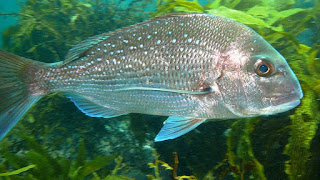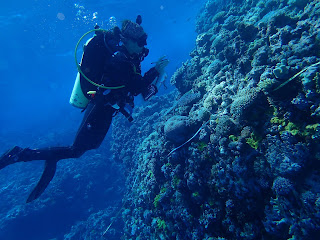1. Ten Rivers Contribute 95% of Plastic Waste to the Ocean
 A new study shows that just 10 rivers in Asia and Africa discharge up to 95 percent of the 8 million metric tons of plastic waste that flows into the oceans. Eight of the 10 rivers are in Asia, including the Yangtze River. This finding offers hope for focusing waste reduction efforts. “Reducing plastic loads by 50 percent in the 10 top-ranked rivers would reduce the total river-based load to the sea by 45 percent," say researchers.
A new study shows that just 10 rivers in Asia and Africa discharge up to 95 percent of the 8 million metric tons of plastic waste that flows into the oceans. Eight of the 10 rivers are in Asia, including the Yangtze River. This finding offers hope for focusing waste reduction efforts. “Reducing plastic loads by 50 percent in the 10 top-ranked rivers would reduce the total river-based load to the sea by 45 percent," say researchers.-----------------------------------------------
 A new study looked at the behavior of 90 species of dolphins, whales and porpoises and found that they form human-like societies. Cetaceans "live in tightly-knit social groups, have complex relationships, talk to each other and even have regional dialects.” This behavior is linked to their large brain size."The researchers gathered records of dolphins playing with humpback whales, helping fishermen with their catches, and even producing signature whistles for dolphins that are absent – suggesting the animals may even gossip.”
A new study looked at the behavior of 90 species of dolphins, whales and porpoises and found that they form human-like societies. Cetaceans "live in tightly-knit social groups, have complex relationships, talk to each other and even have regional dialects.” This behavior is linked to their large brain size."The researchers gathered records of dolphins playing with humpback whales, helping fishermen with their catches, and even producing signature whistles for dolphins that are absent – suggesting the animals may even gossip.”
-----------------------------------------------
Mussels, oysters, and clams produce methane and nitrous oxide, which – two potent greenhouse gases. A study in the Baltic Sea found that the shellfish produce as much greenhouse gas as 20,000 cattle. Multiply that by shellfish numbers around the world, and shellfish may indeed be a contributor to climate change. The enrichment of coastal waters (where the shellfish live) by agricultural runoff may make the problem worse.
Read More...
-----------------------------------------------
4. Last-Ditch Effort to Save the Endangered Vaquita Porpoise
 The ocean’s most endangered marine mammal, the vaquita porpoise, is the focus of a last-ditch rescue mission. An international human and dolphin team have been dispatched to the Gulf of California, Mexico, to locate the last remaining 30 porpoises. The hope is to breed these individuals and eventually return them to the wild.
Read More...
The ocean’s most endangered marine mammal, the vaquita porpoise, is the focus of a last-ditch rescue mission. An international human and dolphin team have been dispatched to the Gulf of California, Mexico, to locate the last remaining 30 porpoises. The hope is to breed these individuals and eventually return them to the wild.
Read More...
4. Last-Ditch Effort to Save the Endangered Vaquita Porpoise
 The ocean’s most endangered marine mammal, the vaquita porpoise, is the focus of a last-ditch rescue mission. An international human and dolphin team have been dispatched to the Gulf of California, Mexico, to locate the last remaining 30 porpoises. The hope is to breed these individuals and eventually return them to the wild.
The ocean’s most endangered marine mammal, the vaquita porpoise, is the focus of a last-ditch rescue mission. An international human and dolphin team have been dispatched to the Gulf of California, Mexico, to locate the last remaining 30 porpoises. The hope is to breed these individuals and eventually return them to the wild. -----------------------------------------------

Scientists studying a marine reserve off the coast of Auckland, New Zealand, found that the snapper in the reserve are related to the young snapper found outside the reserves. This finding provides evidence that marine reserves benefit local fishermen by serving as fish nurseries.
Read More...-----------------------------------------------
6. Major Changes to Shallow Reef Ecosystems Predicted Due to Climate Change

A global survey by divers has led to research that predicts yet another impact of climate change on coral reefs: a decline in the diversity of crabs, lobsters, sea urchins and whelks. As warm-water fish expand their ranges in response to warming waters, they will trigger a decline in invertebrate species that are already reeling from acidification.
-----------------------------------------------
Be sure to "LIKE" http://facebook.com/SeaSave to ensure our "Week in Review" is delivered to your newsfeed every Friday.
Sea Save Foundation is committed to raising awareness of marine conservation. The Week in Review is a team effort produced by the Sea Save staff to provide a weekly summary of the latest in marine research, policy, and news.
